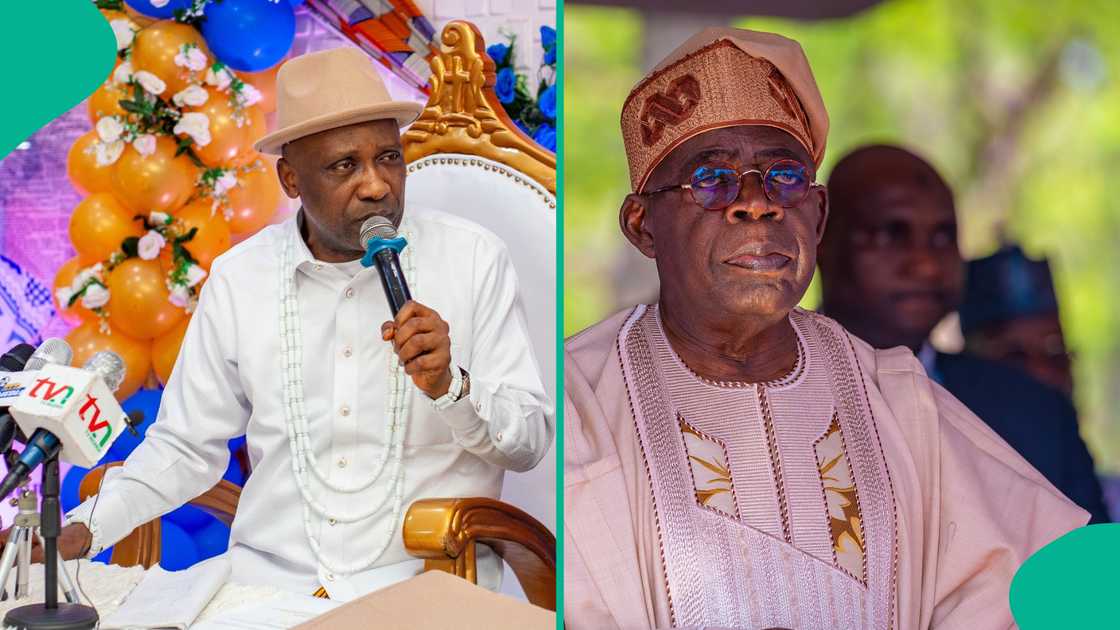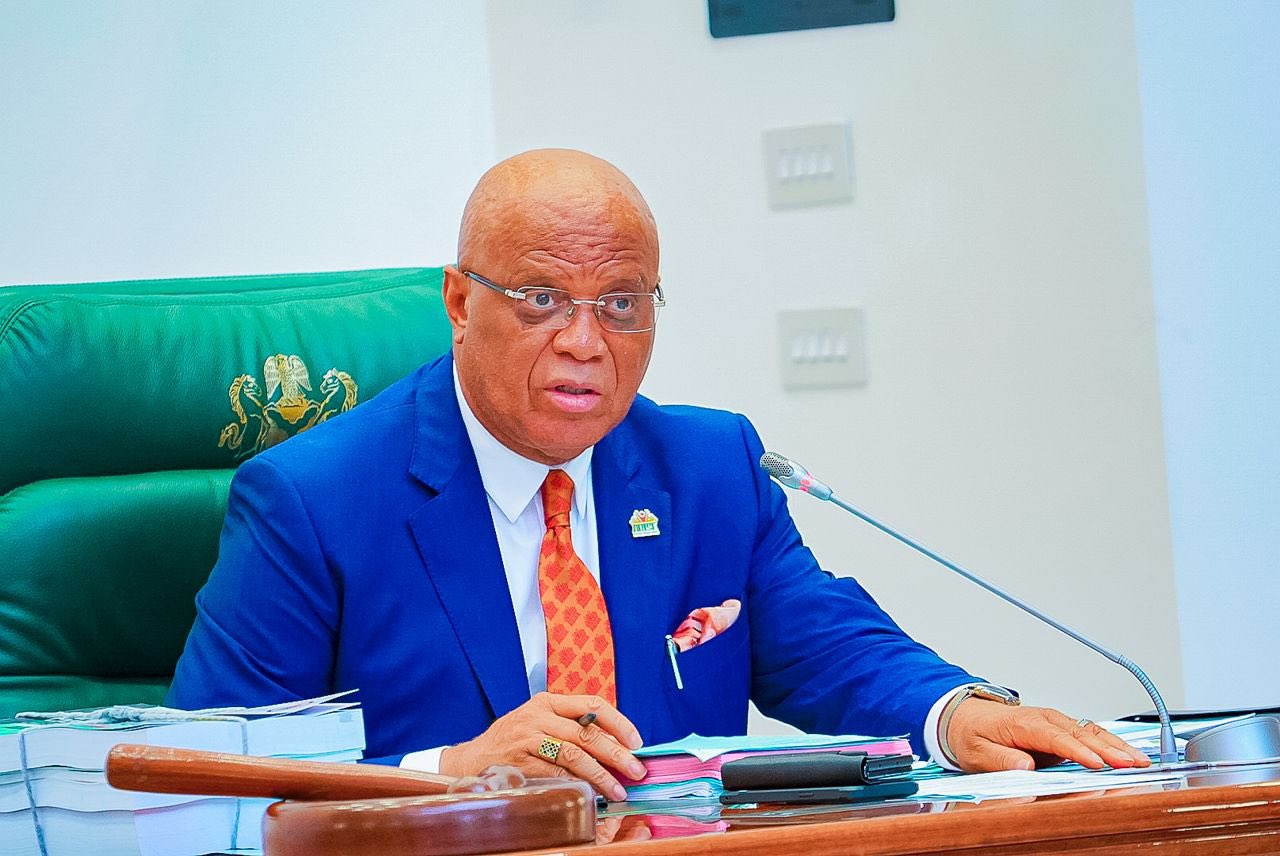Anyaoku, Obasanjo differ on new constitution
Former Secretary-General of the Commonwealth of Nations, Emeka Anyaoku, has reiterated the urgent need for Nigeria to adopt a new pluralistic constitution, rejecting the 1999 Constitution (as amended) as a military-imposed document incapable of delivering national progress.
But former President Olusegun Obasanjo disagreed, arguing that the country’s challenges were less about the constitution and more about those entrusted with operating it.
Meanwhile, human rights lawyer and Senior Advocate of Nigeria (SAN), Femi Falana, criticised the political elite’s reluctance to support meaningful reform.
This was as former governor of Akwa Ibom State, Victor Attah, declared that the 1999 Constitution was never a product of the people’s will. Speaking in Abuja yesterday at the opening session of a three-day Emergency National Constitutional Summit, Anyaoku said the present structure “does not reflect the diverse nature of the country and cannot meet the aspirations of its people”.
The summit, with the theme ‘Actualising a Constitutional Democracy that Works for All in Nigeria’, was organised by The Patriots, in collaboration with the Nigerian Political Summit Group (NPSG).
The elder statesman, at the event held at the Transcorp Hilton, Abuja, argued that Nigeria’s 36-state federal arrangement has failed to replicate the developmental gains experienced shortly after Independence in 1960, lamenting that 65 years later, the country holds the unenviable title of the world’s poverty capital.
Anyaoku stated: “It is important to state the following indisputable facts that are recognised by all our citizens, except, of course, those who want to continue to live in denial. First, Nigeria is a pluralistic country, and like all successful pluralistic countries around the world, for its stability and maximal development, its constitution must address its own problems. Second, it must address its pluralism by being formulated by elected representatives of its diverse people.
“Our present 1999 Constitution, as amended, is not such a constitution. It was not democratically formulated. It was instead imposed on the country through a decree by the military administration. The governance system derived from it is not only non-inclusive, but also induces over-expectation of the nation’s resources on administration rather than on capital development. As a result, what we see is our nation’s need for a new constitution. This is the need for a new constitution, but this is a matter to be made by the people of our country.”
However, Obasanjo, in a letter to Anyaoku, said he was more concerned about those who operate the constitution than the need for a new one, emphasising good governance and citizens’ welfare.
In the letter, Obasanjo emphasised that regardless of a constitution’s strengths or weaknesses, the key issue lies with those who operate it. He stated: “A nation’s constitution, as the fundamental law, must reflect the history, the constituents and the aspirations of its people. It must be sacrosanct. From my experience in operating our Constitution, I will be the first to point out some areas of our Constitution that need amendment.
“However, for me, no constitution can ever be regarded as perfect. But whatever the strength or weakness of a constitution, the most important issue, to my own understanding and experience, is the operators.”
He pointed out that even the best constitution could be manipulated and misused by its operators. Falana noted that the current political class “is too comfortable with the flawed system,” saying “the only way you can throw away the 1999 constitution is through a revolution.”
He also directed his criticism at both the judiciary and the legislature for frustrating electoral reforms, while accusing the Supreme Court of actively undermining the use of technology to ensure credible elections.
Attah called the Constitution a military decree that robbed citizens of their sovereignty and undermined national unity. According to the former governor, the summit represents the last peaceful opportunity for Nigerians to confront the fundamental contradiction of the country being governed by a constitution that does not reflect the consent of the people.
He stressed that the prevailing presidential system and centralised governance structure alienated the people and destroyed trust in the democratic process.
You may also like...
Diddy's Legal Troubles & Racketeering Trial

Music mogul Sean 'Diddy' Combs was acquitted of sex trafficking and racketeering charges but convicted on transportation...
Thomas Partey Faces Rape & Sexual Assault Charges

Former Arsenal midfielder Thomas Partey has been formally charged with multiple counts of rape and sexual assault by UK ...
Nigeria Universities Changes Admission Policies

JAMB has clarified its admission policies, rectifying a student's status, reiterating the necessity of its Central Admis...
Ghana's Economic Reforms & Gold Sector Initiatives

Ghana is undertaking a comprehensive economic overhaul with President John Dramani Mahama's 24-Hour Economy and Accelera...
WAFCON 2024 African Women's Football Tournament

The 2024 Women's Africa Cup of Nations opened with thrilling matches, seeing Nigeria's Super Falcons secure a dominant 3...
Emergence & Dynamics of Nigeria's ADC Coalition

A new opposition coalition, led by the African Democratic Congress (ADC), is emerging to challenge President Bola Ahmed ...
Demise of Olubadan of Ibadanland
Oba Owolabi Olakulehin, the 43rd Olubadan of Ibadanland, has died at 90, concluding a life of distinguished service in t...
Death of Nigerian Goalkeeping Legend Peter Rufai

Nigerian football mourns the death of legendary Super Eagles goalkeeper Peter Rufai, who passed away at 61. Known as 'Do...




